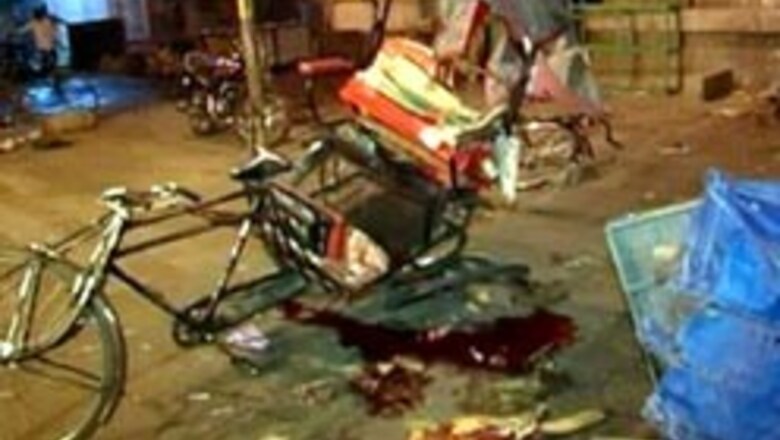
views
New Delhi: Bombs exploded in two Ahmedabad hospitals just as the injured were being rushed in for treatment following a series of blasts Saturday.
In what could be a pattern, terrorists had tried to do exactly the same thing in Jaipur two months ago — but the powerful bomb outside the Sawai Mansingh Hospital was defused in time.
In what experts see as an effort to cause maximum collateral damage — a tactic that bears the imprint of al-Qaeda attacks on hospitals — new methods are being employed in the increasing number of terror attacks in the country.
This trend became clear with terrorists striking at two state-run hospitals — Civil Hospital and LG Hospital — and a private hospital in Ahmedabad, killing at least 18 people at these three spots.
At least 50 people have been killed in the 16 blasts that tore through Ahmedabad Saturday.
The blasts at the hospitals were triggered by timer devices to coincide with the rush of victims from other blast sites. Two blasts at civil hospital at 7.55 pm and 8.02 pm near the trauma centre killed at least 15 people, including two doctors and a medical student.
The first blast took place inside an ambulance in the parking lot while the other bomb, planted on a bicycle, went off soon after that. The blast at LG Hospital went off in a car parked near the emergency ward and killed at least three people.
Similarly, two months ago terrorists suspected to be from the banned militant outfit Harkat-ul-Jihad-al-Islami (HuJI) had planted a cycle bomb at the Sawai Mansingh Hospital, Jaipur's biggest state-run hospital.
The security agencies managed to locate and defuse the powerful bomb in the nick of time. The nine synchronised blasts in Jaipur on May 13 had killed at least 60 people and injured more than 200. All the injured at that time were admitted in the Sawai Mansingh Hospital.
“Look, the trend here is absolutely clear. In the last two major terror blasts the suspected militants have planted bombs in hospitals for reasons that are not too hard to decipher — cause collateral damage and create more panic,” a top intelligence official told IANS.
“Obviously, it is frightening when hospitals are prime targets. First the critically injured don't get treatment at the time and there is always a chance of stampede as many people throng to check on their family and friends.”
A senior Delhi Police officer said: “It could be another tactic to keep doctors away from hospitals to perform emergency duties. They (terrorists) want to unleash terror and hit where it hurts most. We have to factor this trend and seriously work out contingency plans.”
Terror attacks across the world have become more audacious, taking on new dimensions. In February al-Qaeda turned two women with Down's Syndrome into human bombs to kill 99 people in Baghdad. The two were apparently fooled into wearing explosive-filled vests which were then detonated remotely by mobile phones as the women mingled with crowds.
India's medical community too has termed the targeting of hospitals an "inhuman act".
“The attack on a hospital is the most inhuman thing possible on this earth. Hospitals are like temples and are sacrosanct places where the patients are treated, setting aside their caste, creed, social and financial status,” said YK Gupta, chief spokesperson of country's premier All India Institute of Medical Sciences (AIIMS).
On the point of beefing up security at the hospitals, Gupta said: “A hospital cannot be turned into a fortress as patients from all walks of life visit it for treatment. But we can manage the crowds and strengthen our security measures to avert such incidents.”




















Comments
0 comment